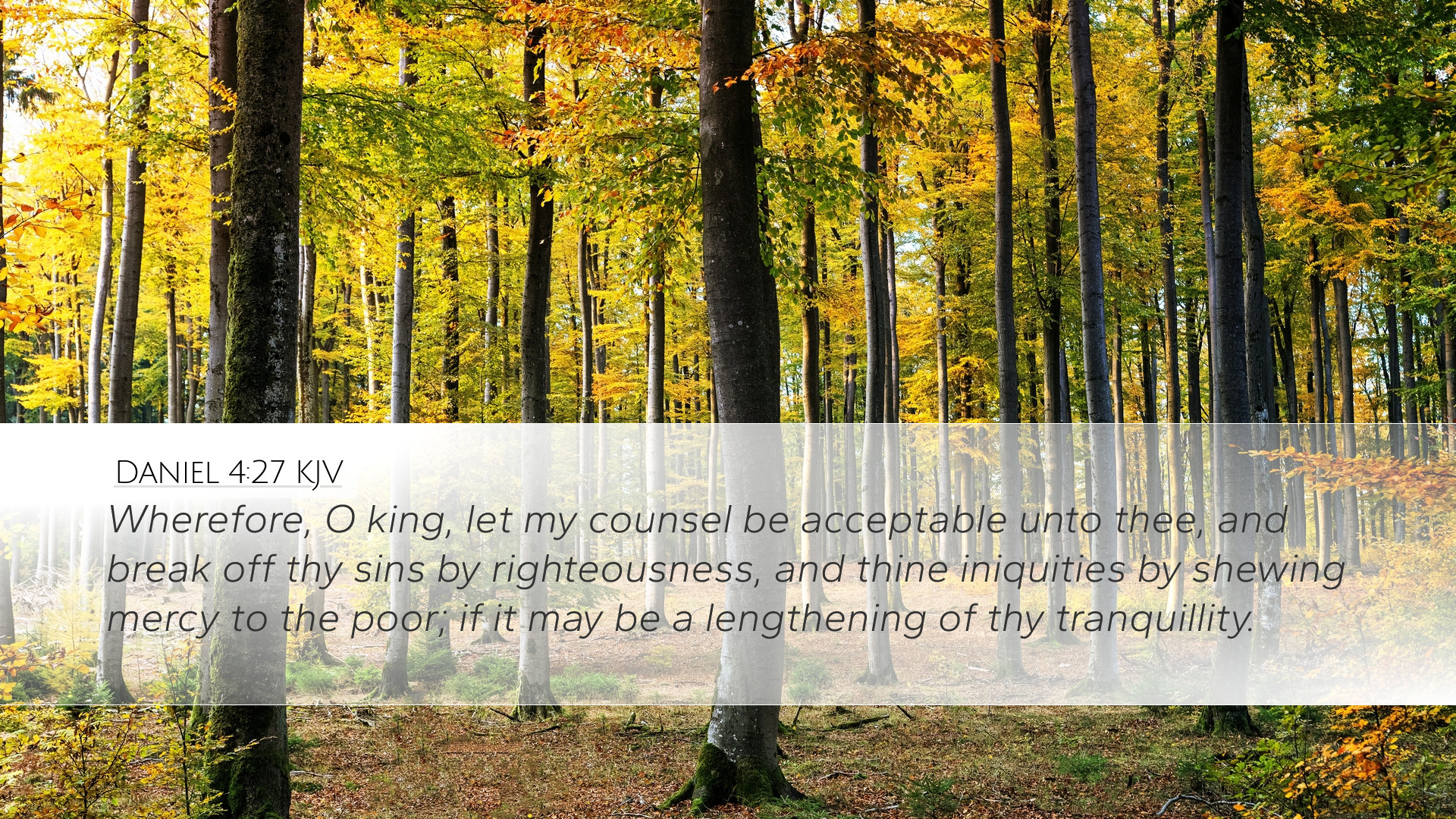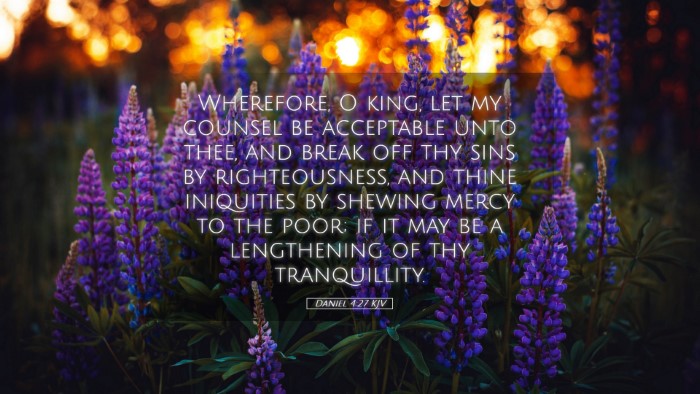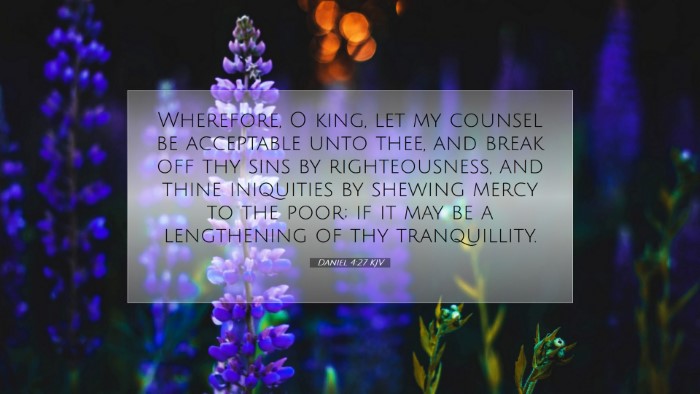Commentary on Daniel 4:27
Contextual Background: Daniel 4 is a pivotal chapter in the Book of Daniel, detailing King Nebuchadnezzar's dream of a great tree that is cut down as a warning of his impending judgment. The dream emphasizes themes of humility, divine sovereignty, and the ultimate recognition of God's authority over earthly kingdoms.
Verse Analysis
Daniel 4:27: "Wherefore, O king, let my counsel be acceptable unto thee, and break off thy sins by righteousness, and thine iniquities by showing mercy to the poor; if it may be a lengthening of thy tranquillity."
Exegesis and Commentary
This verse serves as Daniel’s counsel to Nebuchadnezzar, urging him to repent and act righteously. The verse encapsulates a prophetic plea, highlighting three major themes:
- Counsel and Acceptance: Daniel implores the king to heed his advice. The tone is pastoral, reflecting concern for the king's welfare rather than mere prophecy of doom.
- Repentance: "Break off thy sins by righteousness". This phrase emphasizes a necessary transformation in Nebuchadnezzar’s life. The call to break off sins illustrates the biblical principle that true repentance involves a decisive change in behavior.
- Social Justice: "Showing mercy to the poor" reflects the social ramifications of true repentance. It emphasizes that genuine righteousness must be expressed through acts of mercy and justice towards those in need.
Insights from Commentators
Matthew Henry's Commentary: Henry underscores that Daniel's earnest intercession on behalf of Nebuchadnezzar exhibits the prophetic role as one of a mediator. He emphasizes that the king's acknowledgment of his sins is critical to avoiding the foretold judgment. Henry points out that mercy towards the poor is a key characteristic of righteous leadership.
Albert Barnes' Notes: Barnes elaborates on the “lengthening of tranquility” as a theme throughout the scriptures. He interprets this phrase as God's willingness to extend mercy if the king repents. This illustrates that God’s judgment is not immediate but is often delayed by His grace, contingent upon the sinner's response to divine warning.
Adam Clarke's Commentary: Clarke emphasizes the urgency of Daniel’s message. He views Daniel as an advocate, caring for the king’s spiritual wellbeing. Clarke comments on the importance of social justice in the expression of true piety, stating that neglecting the poor is tantamount to neglecting God Himself. He assures that the kingdom's stability is linked to the king's moral and spiritual integrity.
Theological Implications
This verse invites deep theological reflection on the intersection of divine sovereignty and human responsibility. It teaches that while God is sovereign and in control of kingdoms, He also calls human rulers to act rightly and show justice. The refusal to do so can lead to spiritual and earthly consequences.
Repentance as a Theme
Repentance remains a core theme in both the Old and New Testaments. Daniel's directive to Nebuchadnezzar illustrates that repentance is not merely a private act but is evidenced through measurable changes in conduct, particularly in how one treats the marginalized.
Consequences of Neglect
The counsel to show mercy serves as a powerful reminder of the consequences of neglecting social justice. This principle is echoed throughout the prophetic literature in the Bible, underscoring that spirituality and social ethics are inseparably linked.
Practical Applications
For pastors and scholars, Daniel 4:27 serves as a rich source for teaching about leadership and its moral obligations. It is a call for religious leaders to be advocates for social justice, emphasizing that true leadership is marked not only by authority but also by compassion and righteousness.
- Call to Action: The exhortation to break off sins challenges leaders today to reflect on their own lives and the impact of their decisions on society.
- Encouragement to Counsel: Pastors are encouraged to provide counsel grounded in scripture, calling for accountability among their congregants.
- Advocacy for the Marginalized: The narrative calls for a renewed focus on compassion, aligning church missions with actions that support the needy.
Conclusion
In conclusion, Daniel 4:27 is a profound verse that provides rich theological insights and practical applications. The intertwining of divine warning, the call for repentance, and the imperative of mercy illustrates the holistic nature of biblical faith. As such, this verse encourages a life marked by righteousness and social responsibility, a vital message for all believers and church leaders.


